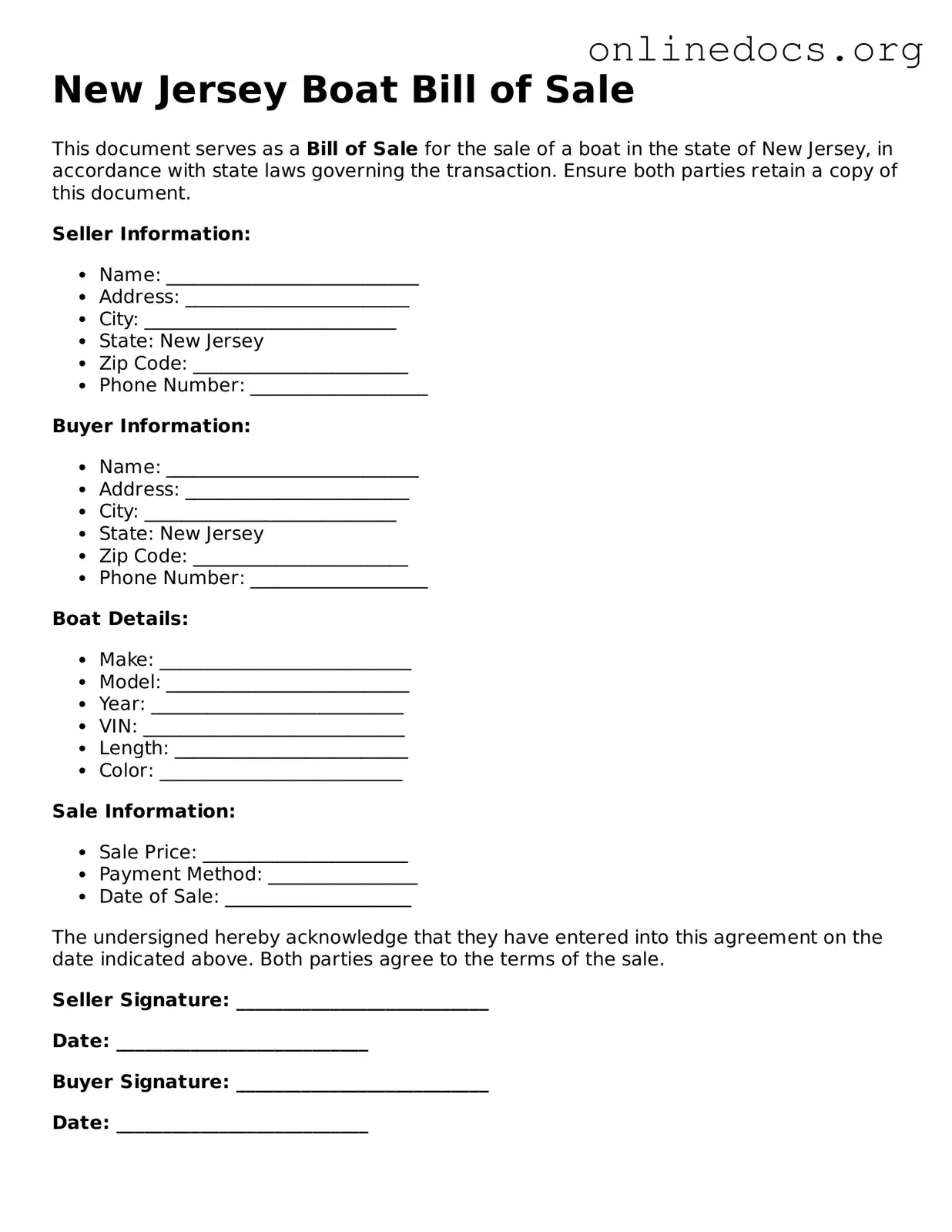When it comes to selling or purchasing a boat in New Jersey, the Boat Bill of Sale form is essential. However, many people make common mistakes that can lead to confusion or even legal issues down the line. Understanding these pitfalls can save you time and hassle.
One prevalent mistake is failing to include all necessary information. Buyers and sellers often overlook critical details such as the boat's hull identification number (HIN), make, model, and year. Omitting this information can create complications during registration or transfer of ownership.
Another frequent error is not signing the document. Both parties must sign the Bill of Sale for it to be valid. A signature signifies agreement and acknowledgment of the transaction. Without it, the document may be rendered useless.
Many individuals also neglect to date the form. The date marks when the transaction occurred, which is crucial for legal and tax purposes. A missing date can lead to misunderstandings about when ownership changed hands.
Inaccurate descriptions of the boat can create significant issues. Some sellers may use vague language or fail to provide complete details about the boat's condition. This lack of clarity can lead to disputes later on, especially if the buyer feels misled.
Another common mistake is not keeping a copy of the Bill of Sale. After the transaction, it’s important for both parties to retain a copy for their records. This document serves as proof of the sale and can be invaluable if questions arise in the future.
Some people forget to include the purchase price. This figure is vital not only for the transaction but also for tax reporting purposes. If the purchase price is left blank, it could raise eyebrows with tax authorities.
Additionally, many individuals fail to provide accurate contact information. Ensuring that both parties’ names, addresses, and phone numbers are correct is essential for any future communication or follow-up regarding the sale.
Using the wrong form can also lead to complications. Some sellers may mistakenly use a generic Bill of Sale instead of the specific New Jersey Boat Bill of Sale. Each state has its own requirements, and using the correct form is crucial for compliance.
Lastly, some individuals underestimate the importance of notarization. While it may not be required for all transactions, having the Bill of Sale notarized adds an extra layer of protection and authenticity. It can help prevent disputes regarding the legitimacy of the sale.
By being aware of these common mistakes, both buyers and sellers can ensure a smoother transaction process. Taking the time to carefully fill out the New Jersey Boat Bill of Sale form can save headaches in the long run.
